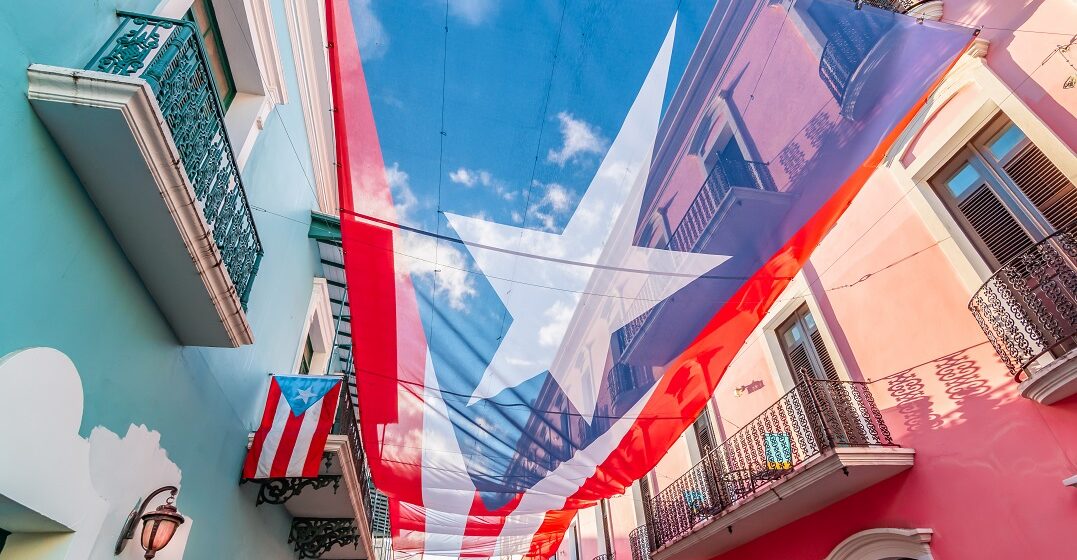A basic guide to moving to Puerto Rico

Are you a US citizen dreaming of island life? Moving to Puerto Rico might be an enticing option to consider. Puerto Rico is a US territory, which means that US citizens can relocate to Puerto Rico without a passport or visa.
Puerto Rico has beautiful cities, amazing beaches, mountains and rainforests. Aside from the main island, there are a few smaller islands you can visit, including Mona, Vieques and Culebra.
Of course, visiting the beaches of Puerto Rico as a tourist is very different from uprooting your life and moving to the Caribbean. In this guide, we’ll cover the basics of moving to Puerto Rico as an American, i.e. a citizen of the United States. We’ll also review some pros and cons of moving to Puerto Rico from the US.
- Moving to Puerto Rico as an American
- Life in Puerto Rico
- Pros and cons of moving to Puerto Rico from the US
- Things to know when relocating to Puerto Rico
Learn languages at your pace
Moving to Puerto Rico as an American
The Americans who generally have the easiest time moving to Puerto Rico are US Americans, and that’s the group we’ll focus on here.
Moving to Puerto Rico as an American is more straightforward than moving to most other places in Latin America because Puerto Rico is a US territory. This means Puerto Ricans are US citizens and can freely travel to the mainland US. This also works the other way around. As a US American living on the mainland, you don't need a passport or visa to enter or stay in Puerto Rico. In many cases, you can even use your state driver’s license.
Life in Puerto Rico
Whether you’re thinking of moving to Puerto Rico, Chile or Spain, researching the culture and lifestyle of your new home country can help you avoid surprises. Though Puerto Rico isn’t technically a foreign country, it does have its own history, culture and language.
Did we mention that Puerto Rico is one of the world’s many Spanish-speaking countries? It might be obvious to some, but if you are dreaming of living in the Caribbean, consider enrolling in an intensive Spanish course to help you better communicate once you settle.
Can I get by with English in Puerto Rico?
Can you get along with English? It depends. Spanish and English are both official languages of Puerto Rico. While many people in Puerto Rico speak English, not everyone does. It may be limited to touristy areas.
What are the people of Puerto Rico like?
The people of Puerto Rico are known to be friendly, welcoming and especially passionate about their art and culinary cultures. Do you have artistic talent? Reaching out to artist groups when you first arrive can be a great way to integrate.
Making friends in a new country is always hard, but speaking the local language will go a long way. If you are looking for opportunities to improve your Spanish, you will find Puerto Rico to be a great immersion experience. If you do not speak Spanish or are a beginner, you'll definitely want to consider taking Spanish classes.
Shopping in Puerto Rico
How about shopping? Big box stores like Walmart and Costco are also in Puerto Rico, so you can generally find any product you need. If you can’t, you’ll be happy to know the US mail service is the same. And, of course, Amazon ships to Puerto Rico.
The weather in Puerto Rico
Finally, you are probably considering Puerto Rico for the weather! If you like the heat and beaches, this is the place for you. However, bear in mind that hurricanes and erratic weather are events you should be ready for.
Learn languages at your pace
Pros and cons of moving to Puerto Rico from the US
What are the pros and cons of moving to Puerto Rico from the US? Let's look at a few.
Pro: We mentioned the nice weather. The Caribbean is famous for sunny days and a warm climate year-round.
Con: Don't forget that hurricanes can be devastating. Puerto Rico has been hit with serious disasters as a result of hurricanes Irma and Maria. Some of the infrastructure, such as the power grid, hasn’t been properly updated since Hurricane Maria in 2017.
Pro: The cost of living is generally lower than in the mainland US.
Con: Prices for groceries can be higher on average. Remember, Puerto Rico is an island. Anything not produced on the island needs to be shipped.
Pro: Some people move to Puerto Rico to take advantage of tax benefits for business owners. One program offers a 0% tax on interest, dividends and capital gains earned while living in Puerto Rico. Another program offers a 4% corporate income tax rate for companies that relocate.
Con: To take advantage of the tax benefits, there are some additional residency requirements you must comply with. Be sure your paperwork is in order before making a big decision. And if some doubts still persist, consult your tax professional.
Pro: The currency. Puerto Rico uses the US dollar, so you don’t have to do math every time you buy something.
Con: Cash is king. For many US Americans who rely on debit or credit cards, it can be shocking how much business is handled in cash in Puerto Rico. If you visit a small neighborhood restaurant or corner store, you’ll most likely need cash.
Pro: No changes in your phone service. If you have cell service with AT&T, Verizon, T-Mobile or Sprint, your phone plan will work in Puerto Rico with no roaming charges.
Con: Being on an island means that cellular service can be less reliable — especially in more remote areas.
Things to know when relocating to Puerto Rico
Unless you are independently wealthy, you need to think about working if you move to Puerto Rico.
The pandemic changed many aspects involved in relocating to Puerto Rico. With the rise of remote work, Puerto Rico has become a sought-after destination for digital nomads. San Juan is now home to many coworking spaces equipped with high-speed fiber-optic internet.
If you want to find a job in Puerto Rico as a US citizen, you do not need any work permission or work visa. That is a benefit as compared to, say, moving to Mexico from the US.
Finally, don't forget about your furry friends or perrhijos (dog children). You can bring your pets to Puerto Rico, but there are some requirements and restrictions:
- Staffordshire bull terriers, American Staffordshire terriers and American Pit Bull terriers are prohibited breeds
- Pets must have a Vet Health Certificate issued within 10 days of travel
- Pets must be vaccinated against rabies at least 30 days before travel
Look before you leap
Now that you know the basics about moving to Puerto Rico, consider all the serious questions before taking the leap. Do some more research, take some Spanish classes and consider booking an exploratory trip to see how comfortable you feel. Remember that true immersion, including shopping with local vendors rather than tourism-facing businesses, is the best way to mitigate the negative impact of moving to a new country. So, what do you think? Would you consider a big move like this?













